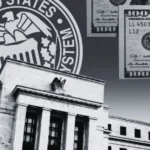Bank of Japan (BOJ) decided to pause its interest rate hikes due to ongoing market instability. Deputy Governor Shinichi Uchida announced that the BOJ will wait until the economy becomes more stable before making any changes to borrowing costs. This decision comes as both global and domestic markets continue to face significant fluctuations.
Market Instability Leads to Rate Hike Pause
Uchida explained that recent market volatility is a key reason for keeping the current monetary policy in place. This decision follows a major selloff in global markets, largely driven by the unwinding of yen “carry trades.” These trades involve borrowing yen at low interest rates to invest in higher-yielding assets abroad. The reversal of these trades has caused considerable disruptions in the financial markets.
Effects of Recent Market Disruptions
The BOJ’s decision to halt rate hikes is closely linked to the recent market turmoil. Jim Bianco, founder of Bianco Research, noted that the BOJ’s interest rate decisions have contributed to the current financial unrest. The selloff in global markets has been severe, with a significant impact from the unwinding of yen-carry trades. Uchida’s comments aim to address these issues by signaling that the BOJ will hold off on rate hikes until the market conditions improve.
Although Uchida’s remarks suggest that no immediate rate hikes are expected, this stance could change if economic conditions improve later in the year. Toru Suehiro, an economist at Daiwa Securities, believes that while the BOJ is not likely to raise rates soon, this could be reconsidered if the economy shows signs of recovery.
Looking Ahead and BOJ’s Approach
The BOJ’s choice to maintain current interest rates reflects a cautious approach in light of ongoing market volatility. Uchida’s statements highlight the central bank’s commitment to monitoring the economic situation closely before making any further rate adjustments. The BOJ aims to balance the need for economic growth with the need for market stability.
As global financial markets remain unpredictable, the BOJ’s decision to pause rate hikes indicates a strategy of careful observation. Uchida’s comments suggest that the central bank will continue to keep a close eye on economic developments and adjust its policies as necessary. For now, the focus is on maintaining stability during a time of financial uncertainty.













